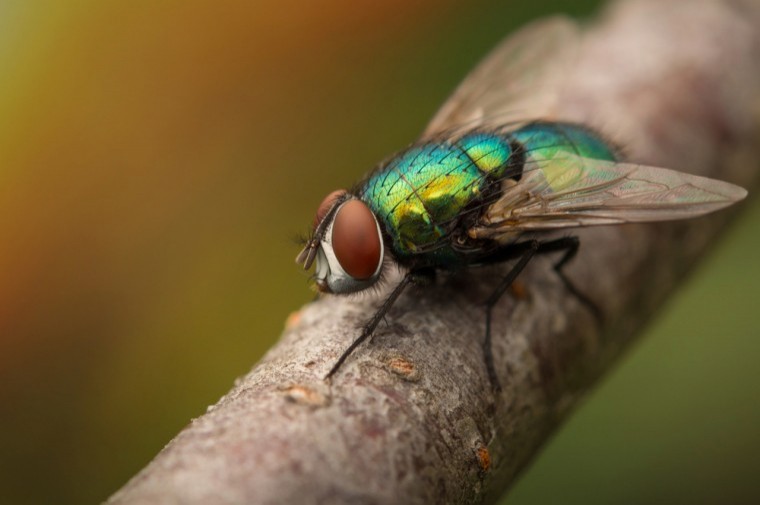Blowflies are attracted to faecal matter, and a combination of long fleeces and dirty backends could increase the risk of fly strike, says Dr Armstrong.
Farms across much of England and Wales have reported fly sightings as part of the Zoetis Parasite Watch scheme. The scheme monitors worms, Nematodirus, fluke and fly levels to help support farmers’ management and treatment decisions.
Sheep Farmer John Yeomans, Llwyn Y Brain, Newtown, is one of 18 farmers involved in the scheme. He has reported flies already on this farm and has taken action to protect his stock.
He says: “We have seen a lot more flies this year as the weather has come warm quicker. We are moving sheep to the hill now and are protecting stock as they go.”
Protection
Dr Armstrong says, for many of the flocks that have been affected, it is now too late to protect stock using insect growth regulator products as they only protect against blowfly at the larval (maggot) stage. This means they cannot be used to treat blowfly infestations.
However, there are products that will treat blowfly, nuisance and biting flies. In sheep, DYSECT® can prevent blowfly strike for up to 10 weeks and will also treat active blowfly strike.
The active ingredient of Fly & Lice Spot OnTM has proven activity against midges, which spread the Bluetongue and Schmallenberg viruses.
“For all treatments, it’s important to speak to your vet or SQP to find out more,” advises Dr Armstrong.
{in-brief}
Prevent economic losses
Flies not only annoy stock, but they can cause major economic losses through reduced feed intake, which impacts on productivity. They can also transmit diseases, such as pink eye, Schmallenberg and Bluetongue.
Studies in sheep have shown more than 5.5kg of weight can be lost over four to six days and reduced wool production by up to 26% in blowfly strike cases1.
There are three main types of flies that affect livestock- nuisance, biting and strike flies. Different fly species appear at different times of the year meaning they are a constant threat. “This is why you need to treat early and regularly throughout the fly season in order to protect stock from the different types of flies,” adds Dr Armstrong.
Get involved
Farmers can share their fly populations online by tweeting a picture of their fly traps to @sheep_farmers and by using the hashtag #parasitewatch or on Facebook at SheepfarmersUK.
Fly traps are available to buy or farmers can simply make their own. Find out how you can make a fly trap on the blog at livestockfarming.co.uk




